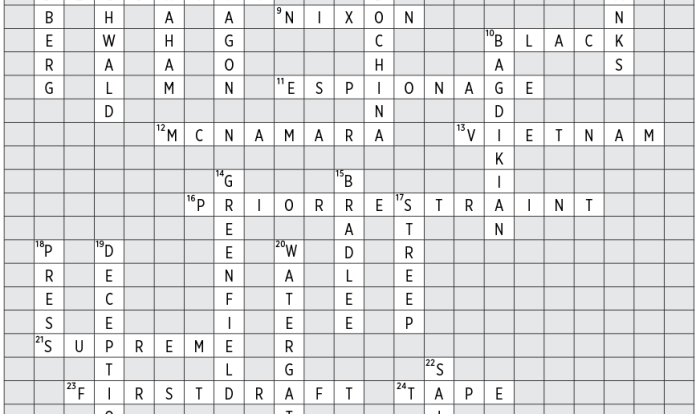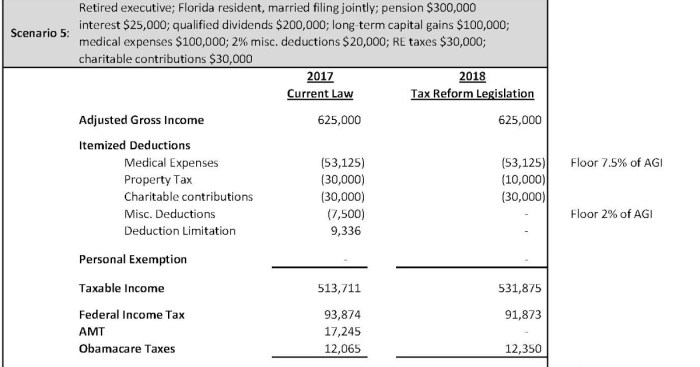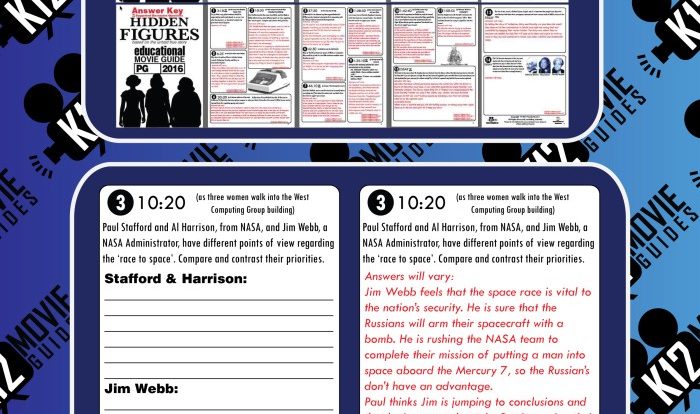Embark on a journey of literacy discovery with Letrs Unit 4 Session 3 Answers, a comprehensive guide that unravels the intricacies of effective reading and provides a treasure trove of knowledge to enhance your understanding of foundational concepts.
This meticulously crafted session delves into the heart of reading comprehension, empowering you with the tools and strategies to unlock the world of written language.
Overview of Unit 4 Session 3
Unit 4 Session 3 focuses on providing a deeper understanding of data analysis and interpretation. It aims to equip learners with the skills necessary to critically analyze and interpret data to make informed decisions.The session covers key topics such as data visualization, statistical analysis, and hypothesis testing.
Through hands-on exercises and real-world examples, learners will gain practical experience in applying these techniques to solve business problems and draw meaningful insights from data.
LeTRS Unit 4 Session 3 Concepts
Unit 4 Session 3 of LeTRS delves into fundamental concepts crucial for effective reading. These concepts lay the groundwork for students to develop strong reading skills and comprehension abilities.
Phonological Awareness
Phonological awareness refers to the ability to identify and manipulate the sound structure of language. This includes recognizing individual sounds (phonemes), blending sounds to form words, and segmenting words into individual sounds. Phonological awareness is essential for decoding written words and understanding the relationship between letters and sounds.
Phonics
Phonics is the systematic study of the relationship between letters and sounds. It involves learning the letter-sound correspondences and applying these knowledge to decode unfamiliar words. Phonics provides a systematic approach to word recognition and helps students develop decoding skills.
Decoding
Decoding is the process of using letter-sound correspondences to pronounce written words. It involves recognizing the individual sounds represented by letters and blending these sounds to form words. Decoding is a foundational skill for reading fluency and comprehension.
Fluency
Fluency refers to the ability to read smoothly, accurately, and with appropriate speed. It involves recognizing words quickly and effortlessly, allowing readers to focus on the meaning of the text rather than the mechanics of reading. Fluency contributes to reading comprehension and overall reading enjoyment.
Comprehension
Comprehension is the process of understanding the meaning of written text. It involves making inferences, drawing conclusions, and connecting new information to prior knowledge. Comprehension is the ultimate goal of reading and is essential for academic success and lifelong learning.
LeTRS Unit 4 Session 3 Activities
Unit 4 Session 3 includes a range of engaging activities and exercises designed to enhance literacy skills. These activities focus on developing phonemic awareness, phonics, fluency, vocabulary, and comprehension.
Phonemic Awareness Activities
*
-*Identifying beginning and ending sounds
Students practice identifying the initial and final sounds in words, which is essential for phonemic awareness and early reading skills.
-*Blending and segmenting sounds
Letrs Unit 4 Session 3 answers provide insights into literary devices. For instance, in “and thus i clothe my villainy,” and thus i clothe my villainy , the speaker employs imagery and metaphor to convey the concept of concealing one’s true intentions.
Understanding such techniques is crucial for analyzing literature effectively. Letrs Unit 4 Session 3 answers offer a comprehensive guide to these elements, enhancing our appreciation for literary works.
Students blend individual sounds together to form words and segment words into their individual sounds, improving their phonological processing abilities.
Phonics Activities
*
-*Letter-sound recognition
Students learn to recognize the sounds associated with different letters and letter combinations, building their phonics foundation.
-*Decoding practice
Students practice decoding words by applying their knowledge of letter-sound relationships, promoting fluency and accuracy in reading.
Fluency Activities
*
-*Repeated reading
Students repeatedly read passages to improve their reading speed, accuracy, and prosody, enhancing their overall fluency.
-*Echo reading
Students read along with a model reader, following their pace and intonation, which helps develop reading fluency and comprehension.
Vocabulary Activities
*
-*Vocabulary instruction
Students are introduced to new words and their meanings through direct instruction, discussions, and interactive games.
-*Contextualizing vocabulary
Students encounter new words in context through reading passages and discussions, helping them understand and retain the meanings.
Comprehension Activities
*
-*Questioning and predicting
Students ask and answer questions about texts, make predictions, and summarize main ideas, developing their comprehension skills.
-*Making inferences
Students draw conclusions and make inferences based on information in texts, fostering critical thinking and deeper understanding.
These activities collectively contribute to the development of strong literacy skills, providing a solid foundation for students’ reading and writing journeys.
LeTRS Unit 4 Session 3 Materials
To facilitate a successful Unit 4 Session 3, a range of materials is required. These materials serve specific purposes in enhancing the learning experience and fostering understanding of the concepts covered.
The following list provides a comprehensive overview of the essential materials for this session:
Materials for Unit 4 Session 3
- Student Workbook:The student workbook contains activities, exercises, and worksheets designed to reinforce the concepts introduced in the session. It provides learners with opportunities to practice and apply their understanding.
- Teacher’s Guide:The teacher’s guide offers detailed lesson plans, background information, and instructional strategies to support the teacher in delivering the session effectively. It provides guidance on pacing, differentiation, and assessment.
- Assessment Tools:A variety of assessment tools, such as exit tickets, quizzes, or observations, are used to evaluate student understanding and progress throughout the session. These tools help teachers identify areas where students need additional support or enrichment.
- Whiteboard or Chart Paper:A whiteboard or chart paper is used for displaying key concepts, diagrams, or notes during the session. It provides a visual aid that enhances student engagement and understanding.
- Markers or Pens:Markers or pens are essential for writing on the whiteboard or chart paper. They allow teachers and students to record information, create diagrams, and facilitate interactive activities.
- Technology Tools:Technology tools, such as a computer, projector, or interactive whiteboard, can be used to enhance the learning experience. They allow teachers to display presentations, videos, or simulations that support the concepts being taught.
- Manipulatives:Manipulatives, such as letter tiles or magnetic letters, can be used to make learning more hands-on and engaging. They provide students with a tactile way to interact with concepts and develop their understanding.
LeTRS Unit 4 Session 3 Assessment
In Unit 4 Session 3, various assessment strategies are employed to evaluate student progress and inform instructional decisions. These strategies include:
Observation and anecdotal notes
Teachers observe students during activities to gather information about their participation, engagement, and understanding of the concepts being taught. Anecdotal notes are used to record specific observations and interactions.
Informal assessments
Informal assessments are brief, low-stakes activities that provide immediate feedback to students and teachers. These may include quick checks for understanding, such as exit tickets or short quizzes, or more extended activities, such as student presentations or demonstrations.
Formal assessments
Formal assessments are more structured and standardized than informal assessments and are used to measure student progress over time. These may include unit tests, quizzes, or standardized assessments.These assessment strategies work together to provide a comprehensive picture of student progress.
Observations and anecdotal notes help teachers identify individual student needs, while informal and formal assessments provide evidence of student learning and understanding. By using a variety of assessment strategies, teachers can make informed decisions about how to support student learning and ensure that all students are making progress.
LeTRS Unit 4 Session 3 Implementation
Implementing LeTRS Unit 4 Session 3 effectively in the classroom requires careful planning and thoughtful execution. Here are some best practices to consider:
Lesson Planning
Thoroughly plan each lesson, ensuring alignment with the session’s objectives. Consider the students’ needs, interests, and prior knowledge. Prepare engaging activities that actively involve students in the learning process.
Pacing
Pace the lessons appropriately, allowing sufficient time for students to grasp concepts and practice skills. Avoid rushing through the material or spending excessive time on any one topic. Monitor student progress and adjust the pace accordingly.
Differentiation, Letrs unit 4 session 3 answers
Differentiate instruction to meet the diverse needs of students. Provide support for struggling students through scaffolding, small-group instruction, or additional practice. Challenge advanced students with enrichment activities or opportunities to apply their knowledge in more complex ways.
LeTRS Unit 4 Session 3 Resources
In addition to the materials provided in the session, there are several additional resources and materials available to support the implementation of Unit 4 Session 3. These resources include online resources, printable materials, and professional development opportunities.
Online resources provide a wealth of information and support for educators implementing Unit 4 Session 3. These resources include websites, articles, and videos that can help educators understand the content of the session and how to implement it in their classrooms.
Online Resources
- LeTRS Unit 4 Session 3
- 5 Essential Components of Effective Phonics Instruction
- How to Teach Phonics Effectively
General Inquiries: Letrs Unit 4 Session 3 Answers
What is the purpose of Letrs Unit 4 Session 3?
Letrs Unit 4 Session 3 aims to enhance understanding of foundational reading concepts, promote literacy development, and provide practical activities to foster effective reading skills.
What materials are required for Letrs Unit 4 Session 3?
Materials for Letrs Unit 4 Session 3 include printable worksheets, reading passages, assessment tools, and additional resources such as online videos and interactive games.
How does Letrs Unit 4 Session 3 assess student progress?
Letrs Unit 4 Session 3 employs a variety of assessment strategies, including formative assessments during activities, summative assessments at the end of the session, and ongoing observations to monitor student understanding.


